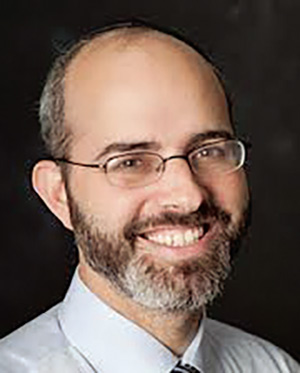
May these words of Torah serve as a merit le’iluy nishmat Menachem Mendel ben Harav Yoel David Balk, a”h.
This week we learned Horayot 8. These are some highlights.
Horayot 8: Is there a mitzvah that garners immediate reward in this world?
Reb Heschel from Cracow (Chanukat Hatorah, Yisro) asked a powerful question. Our sages have established that Hashem does not reward good deeds in this world. Sechar mitzvah behai alma leka, the reward for mitzvot will come in the next world. In our realm we are to fulfill. In the next world we will receive pleasures; hayom la’asotam umachar lekabel secharam. How can this be so? Hashem fulfills the Torah. In the Torah there is an obligation to pay an employee immediately. Bal talin is a mandate to an employer not to have the wages “sleep the night” before they are delivered to the worker who worked by day. Beyomo titein secharo is a positive mitzvah obligating the employer to pay the wage to the employee the same day and not to delay until tomorrow. How then does Hashem delay our reward to the ultimate tomorrow? We are His employees. Shouldn’t He have to reward us right away? Reb Heschel answered with a law. Gemara Bava Metzia teaches that the mandates of beyomo titein secharo and bal talin do not apply when the employee was hired by a representative of the employer and not directly by the employer himself. Suggests Reb Heschel, Hashem Himself did not hire us directly. Hashem’s representative, Moshe Rabbeinu, engaged us on Hashem’s behalf. Since we were hired through a representative, the laws of bal talin and beyomo titein secharo do not apply.
Our Gemara teaches that we heard the first two commandments, Anochi Hashem Elokecha, and Lo Yihyeh Lecha Elohim Acheirim Al Panai, directly from Hashem. For these two commandments there should be the mandate of beyomo titein secharo. Therefore, a Jew who works on himself to think of Hashem and feel emunah and trust in Hashem deserves reward in this world. Emunah garners immediate reward. In light of this idea, a midrash can be understood.
Rav Weinstock quotes a midrash that states “kol mah shenehenin Yisrael ba’olam hazeh, rak bishvil emunah, all that Jews benefit in this world is only because of faith.” This seems difficult to understand. Don’t we have many merits that help us? Don’t we have the merit of Torah study and acts of kindness? Why does the midrash credit everything to faith? Rav Weinstock answers with the lesson of the Chanukat Hatorah. The midrash does not speak of reward in the next world. It speaks of reward in this world. In this world, only faith gets rewarded. Our Gemara teaches that the mitzvah of faith in Hashem was heard directly from Hashem. All other mitzvot were heard from Moshe Rabbeinu. Since faith was heard directly from Hashem, Hashem feels obligated to immediately reward us for faith and fulfill the mandate of beyomo titein secharo.
Rishonim actually argue about faith as a mitzvah. Some count it as the first mitzvah (Rambam Sefer Hamitzvot Mitzvah Aleph, Hilchot Yesodei Hatorah 1:6). Others (Behag and Rav Saadia Gaon) do not count faith as a mitzvah. Tashbetz (Shu”t, Chelek Aleph Siman 139) suggests that our Gemara is the source for the Behag. Our daf states that the first mitzvah Hashem gave the Jewish nation was the prohibition against worshipping idols. How can our daf propose such a thought? Before Hashem said the prohibition against idolatry, “Lo yihyeh lecha elohim acheirim al panai,” He said, “Anochi Hashem Elokecha,” the command to have emunah in Hashem. Isn’t faith in Hashem the first mitzvah? Our Gemara’s statement that the prohibition against idolatry is the first mitzvah is the source that faith in Hashem is not a mitzvah. Faith in Hashem is a fact of life. It is the foundation upon which all the mitzvot rest. According to the Behag, the first mitzvah is the prohibition against worshipping idols. Faith in Hashem is the foundation for all the mitzvot. It is too elementary and essential to count as a mitzvah. Faith is part of the air we breathe and our very existence (Hamevaser Torani, Mesivta).
By Rabbi Zev Reichman
Rabbi Zev Reichman teaches Daf Yomi in his shul, East Hill Synagogue.









